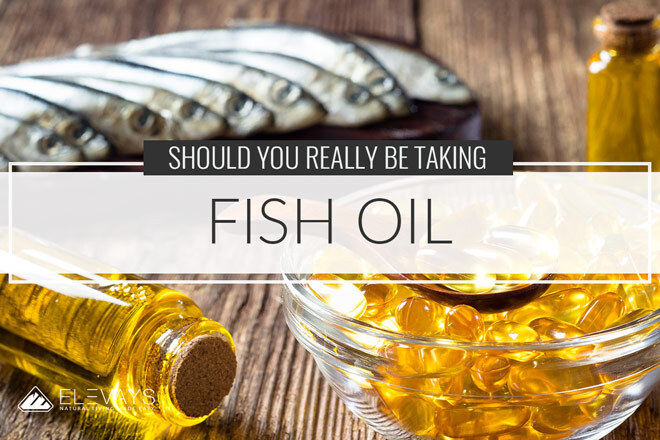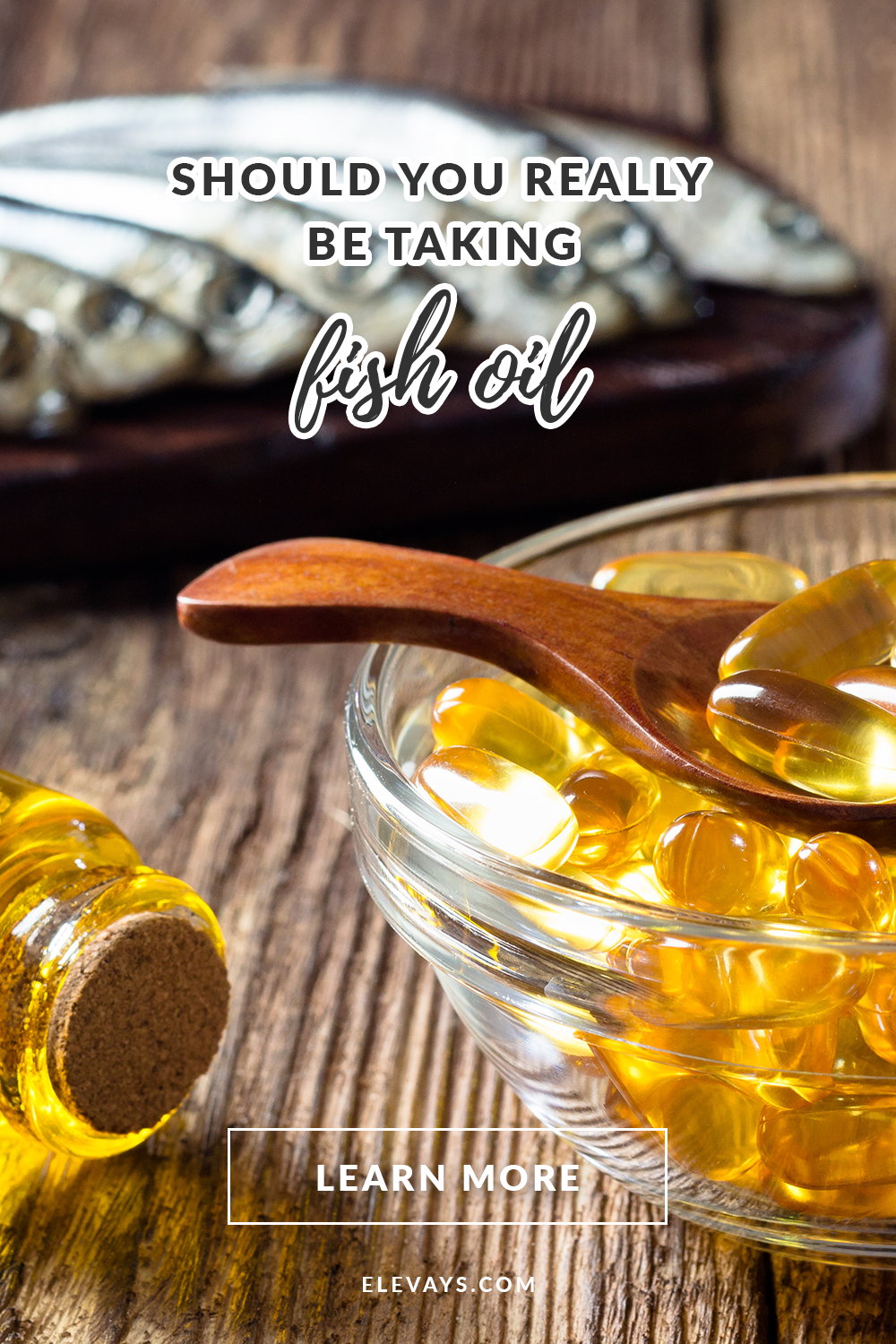If you’re looking for the benefits, but have never thought about the potential side effects of fish oil supplements, this article is for you. We all want the best hair, skin, and nails. We want a high-functioning brain, a slim waist, and a healthy heart.
We need it all and want it as fast as possible—so, we’re fed what seem like promising quick fixes. The problem is, most of the tempting fads we hear about are actually damaging to our health. They may sound promising and even have some science to back them up, but a lot of the time, other facts surrounding the topic are ignored.
Fish oil supplements is an example of a potentially dangerous fad that’s not explored entirely. It’s advertised as a simple and effective way to protect the heart, improve mental health, reduce inflammation, and lengthen life. So it makes sense why American’s spend more than $1 billion a year on fish oil supplements.
TRUTH BOMB:
You’re
Already killing it!
If You Were More Consistent With Your Wellness Routine, You’d Be Unstoppable.
You may know someone who swears by it for the cure for brittle nails but while it may be strengthening her nails, it can also be taxing on her liver. Today, we’re going to deep dive into fish oil and talk about why it’s not the cure-all it’s advertised to be.
Why Fish Oil Is Not A Cure-All As Advertised
Skin, Hair, and Nails
Omega-3 fish oil has been widely advertised as a cure-all for brittle hair, weak nails, and problematic skin. The truth is, krill and fish oil supplements are highly concentrated and can contain mercury (a toxic heavy metal) which harms the body. Build up of heavy metals like mercury will actually end up doing more harm than good in the long run.
This doesn’t mean that you should fear consuming fish. The actual fish compared to concentrated fish oil contain way less mercury than concentrated fish oil. But fish is not the only source you can get omega-3s from. There are plenty of other whole foods and supplements that contain omega-3s that will give your skin, hair, and nails the nourishment that they crave without the toxicity.
Hemp seeds, pumpkin seeds, sesame seeds, chia seeds and walnuts are full of wonderful sources of omega-3s that will support healthy skin, hair, and nails. We’ll discuss more helpful foods to consume in place of fish oil later.
Heart Disease
Studies initially found that fish oil had short term benefits for heart disease but now evidence suggests that there are no benefits of fish oil for preventing or improving heart disease.
In 2010, two randomized controlled studies found that long-term supplementation with fish oil had no significant impact in adults with pre existing heart disease (1). Other studies found that there was no benefit from short-term use of fish oil supplementation on atrial fibrillation (1).
More recent research reported the same thing. In 2018, a study published in the New England Journal of Medicine found that omega-3 fatty acid supplements did not reduce heart attacks, strokes, or deaths related to heart disease in middle-age men and women (2).
There are also studies that showed a direct negative impact of long-term fish oil supplementation. This article highlights one study that showed results of increase in heart disease and sudden death and another that found increased LDL levels and insulin resistance in those who took 3g of fish oil per day (3).
Aging
You may have heard fish oil being promoted as an anti-aging support. But that doesn’t come without some caveats. Fish oils contain polyunsaturated fats, which means they are unstable and easily oxidize. This means that fish oil in general is not very shelf stable and can go rancid quickly if not stored and shipped appropriately.
The high levels of oxidative products found in fish oil supplements, including DHA and EPA (the stuff we “want”), are extremely susceptible to oxidation and have been linked to various health issues including accelerated atherosclerosis and organ toxicity— the complete opposite of what someone who is taking fish oil supplements is looking for (4).
In 2016, the top three selling fish oil supplements in the U.S. showed oxidation levels at 4x higher than the recommended safe levels (1). This is common throughout the fish oil industry as other studies that examined fish oil supplements around the world (eg, South Africa, Canada, New Zealand) and found that up to 80% of the products exceeded measures of appropriate oxidation levels (1).
What To Do Instead
The idea of fish oil supplements isn’t inherently bad. In fact, in our experience of consulting clients for over a decade there can definitely be positive effects of taking fish oil. However, the fish oil has to be sourced appropriately – from low mercury fish and tested for toxins and other contaminants.
Then, once you actually have a pure fish oil it has to constantly be kept at a low temperature to avoid oxidation. Once the fish oil is oxidized the health benefits are gone and then it can be harmful instead of helpful.
This means that to have a safe fish oil that is actually healthy it has to go through testing and then be refrigerated during shipment AND in the store to make sure the oils don’t go rancid. So few companies actually do this. This is why most marketed fish oils have very high oxidation levels. And it doesn’t make sense to take them.
The best way to get fish oil (or any nutritional components) in your diet is not with supplements. It’s from the natural food sources. For omega-3 fats that support hair, skin, nails, heart, and cellular function try incorporating these superfoods into your daily life:
- Low mercury fish
Hemp seeds, sesame seeds, chia seed, walnuts, pumpkin seeds - Wild blueberries
- Leafy greens like spinach
- Foods high in beta-carotene like mangoes, sweet potatoes, raspberries, colorful melons
- Asparagus, artichokes, kale stems
- Horsetail and Nettle Leaf
- Spirulina and barley grass juice powder
Now, you have supportive information on why the claims of fish oil supplements are largely overstated. Are you ready to nourish your body with omega 3s from other supportive sources?
Cites
- https://chriskresser.com/should-you-really-be-taking-fish-oil/
- https://www.health.harvard.edu/blog/fish-oil-friend-or-foe-201307126467
- https://chriskresser.com/when-it-comes-to-fish-oil-more-is-not-better/
- https://pubmed.ncbi.nlm.nih.gov/25604397/






READ the Latest
Longevity
Health Habits
Health Habits
Longevity